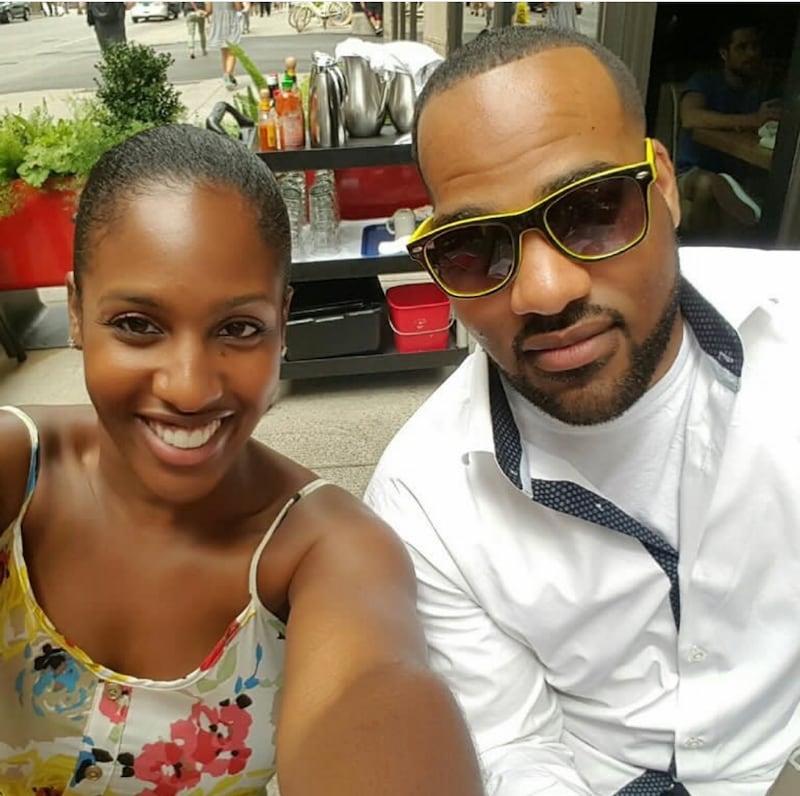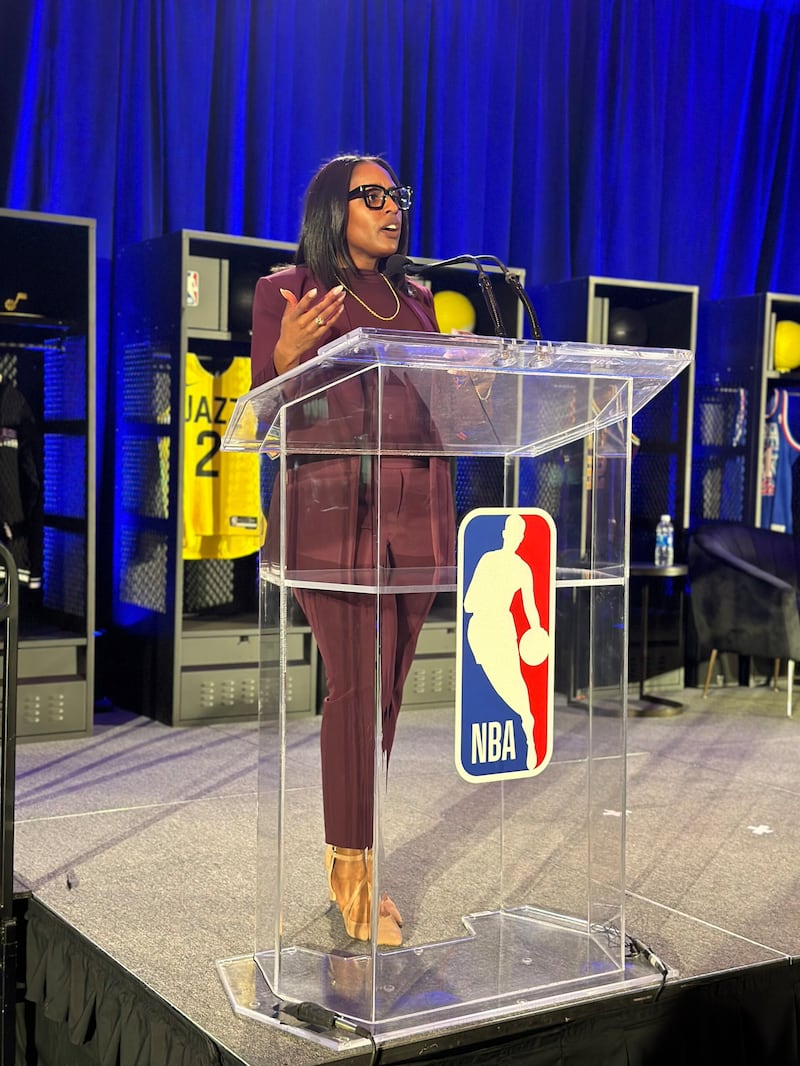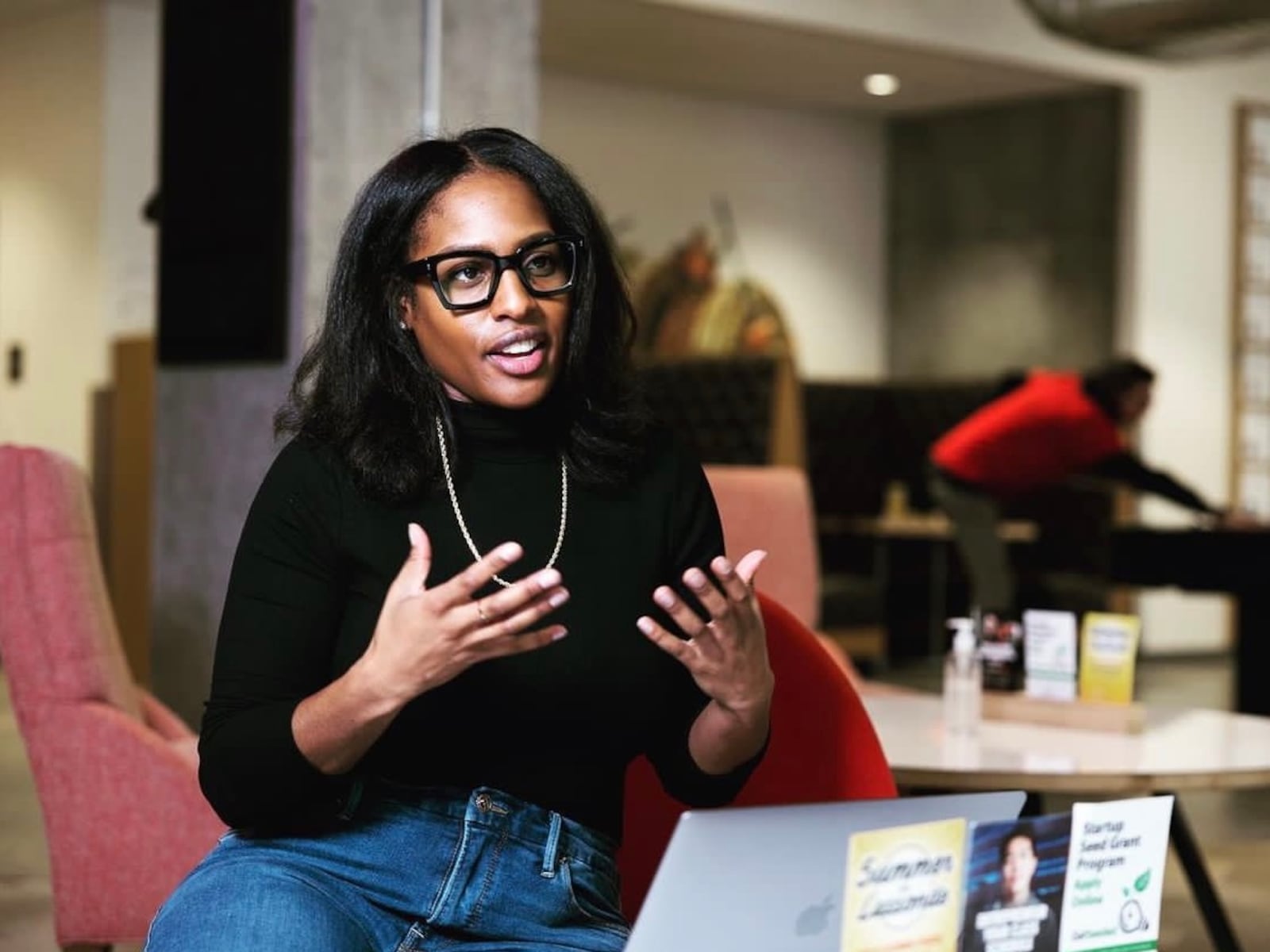This is the story about how I’ve transformed EverWoke—the company founded by my late twin brother, Cameron Williams—into Blendyd Studios. This is a story of two souls remaining forever connected and innovating toward a new future.
Cameron and I were raised in the Chicago area. From the very beginning, I saw Cameron affectionately as my “annoying” little twin brother. Yet, little did I know that the impact he was making in Utah while my family and I were miles away would inspire my life as well as the lives of so many. Little did I know that upon his death at the age of 33 in June 2021, his life’s work would fuel my destiny.
College was the first time we were ever separated. It was then, during this period of discovery and growth, that our personalities really blossomed. I decided to attend an HBCU—Spelman College in Atlanta, Georgia—and he attended the University of Oklahoma in Norman, Oklahoma. Life with our parents, coupled with our college experiences away from them and from each other as twins, was transformational.
Cameron was a track star, and I a psychology major with a pre-med concentration. We couldn’t have been more different. I was all about academics, personal transformation and impact. Cameron was, as he always stated, “an athlete who will be a champion.”
For me, psychology was a window into the essence of people and why they made certain decisions. I eventually became laser-focused on the topic and narrowed it down specifically to neuropsychology, where I went deep into the anatomy of the brain and the different components of chemicals that shape behavior.
As he moved further in his track career, Cameron began missing his mark. His vision became blurry and he experienced headaches. When Cameron and I were 19, he was diagnosed with his first brain tumor and needed surgery.
I wanted to know what I could do. I researched and I found out that he would likely need a clinical neuropsychologist, someone to help him go through a therapy process in order for his brain function to regain itself.
I had the opportunity to do an internship at Washington University in St. Louis at the genomic lab. I went from “I’m going to be a medical doctor” to instead get my PhD in clinical neuropsychology—I’m actually a published genomics researcher. Interestingly enough, Cameron came out of surgery, and he was just fine. He was normal, and I’d learned too much not to make an impact with my new knowledge.
I stayed on track to go deeper into science and research, but I really enjoyed the idea of venturing into fields I had no business in, learning deeply about them, and being an unlikely suspect to drive the field forward. Because I was new, I was able to translate a lot of that learning in a way that most people could understand.
I realized that was a gift for me—to be an outsider, to learn a field deeply, then translate that knowledge so others could also discover new learning. That led me to my senior year when I learned about an issue called “educational inequity,” where your zip code determines the quality of education you’re receiving.
Teach For America recruiters made it very clear that, given my background in science and passion for impact, I had the ability to change that narrative. I ended up in education in a similar fashion. I had no business being in education, but I decided to learn the field deeply so I could help transform the narrative and scale my impact.

Transitioning into education
My journey into education started in the summer of 2010 in Houston, Texas, with Teach for America, nationally the largest provider of diverse teachers in low-income communities. I was 22 at the time and taught anatomy and physiology to high school juniors and seniors.
All of a sudden, I went from being responsible solely for myself to being responsible for 172 students in their learning and in ability to graduate. I went into education to transform it, yet it transformed me.
I worked in an inner-city school where some students were emancipated and taking care of themselves. To watch a 17-year-old try to navigate school but also choose every element of life—including having their own apartment, working and even possibly being a parent too—was difficult and eye-opening for me.
For three years, I was observing, listening and learning from all of these unfamiliar experiences that were the opposite of mine as a teen. I tried my best to help my students through it, get them resources, elevate them and share their stories.
One of the hardest days was when I had a student in the foster care system turning 18. When you’re 18 and in foster care, you’re released from the system with no plan or template for what happens next. She was terrified—no family and nowhere to go.
At this point, I was 24 years old and barely taking care of myself. She wanted me to adopt her. I saw that the challenges students were facing were real, deep and just as significant as what adults were going through, though it’s not always acknowledged. The school became a safe haven for these students from so many things, from hunger to not having shelter.
As my career moved forward, I transitioned from a classroom teacher to more of a school leadership role. I had the opportunity to develop a school within a school as a part of the leadership process. I had already been on the ground level, and now I was thinking more about what education could be.
In my last role before Blendyd, I was leading the Social Innovation Initiative within Teach For America’s Reinvention Lab. I was a part of the founding team, and we were looking at education on a 5- to 10-year horizon. We were thinking deeply about how the world, economy, society and the role of student and teacher was evolving. That was one of the most fascinating career experiences of my life. I was in that role when my brother Cameron passed away of his second brain tumor in June 2021.
Cameron leaves behind EverWoke
Cameron left behind many things. One of them was his tech company, EverWoke, which was like the child he never had. It was leading the logistics-transportation space, winning different awards, securing funding and later partnering with companies like Domo. He was living his dream.
When I saw what Cameron built, I saw so much magic behind it, but it also became clear that for it to go into the market, it needed leadership and renewed belief behind it. My brother needed me, and I had everything I needed to help him. I decided to step up, raise my hand, and lead his vision.
Maybe I’m unreasonable for taking this on. Everyone has reassured me I don’t have to do this. But I come from a family who finds purpose through tragedy, and I have 12 years of experience pivoting and transforming industries. I am determined to protect and elevate my family’s legacy, so I’m putting everything I know toward leading my brother’s vision to viability. This has become the ultimate journey of a lifetime.
Someone asked me why Cameron started EverWoke. I’m going to give you the sister version of it; then I’ll give you the official business reason.
Cameron and I were 16, and we both got jobs. Cameron’s first job was at Ace Hardware, and as a part of his role, he had to do inventory management. He hated it. His solution was to create an inventory management system for a hardware store at age 16.
Our neighbor and godfather was very deep into computer science and helped Cameron create this program. And all of a sudden, he would leave work early and his manager didn’t understand how he was getting things done so quickly. Cameron revealed that he had created, via Excel, this inventory management system. Every time they would scan an item, it would deduct it. By the end of the day, he literally pressed a button and inventory was done.
Cameron always operated with the mindset, “There are things we have to do, but we don’t actually have to be the ones to do them.” He carried that with him through his time at Goldman Sachs and Domo. Through each transition, seeking to problem-solve at every turn, he then found his way into the world of what industry really needed—more efficiency. This realization and reality for Cameron eventually led to innovation and technology for the trucking industry.Cameron started the first version of EverWoke in 2018, called Asante. When he passed away, Cameron had already established a board of directors at the company and had an incredible team in place. Cameron’s passing was a devastating loss for all of us. The Everwoke team lost their visionary, their technologist, and they weren’t sure there was a clear path forward. Frankly, I wasn’t either, but what I saw was enough to try.

I made it clear that I wanted to explore opportunities for the company. The board made it clear that they would support me in the role of CEO. I was motivated to see Cameron’s legacy through, as his vision was too big to leave with him.
I joined the EverWoke team in July 2021 and went all in by August 2022. I found that EverWoke needed to pivot in order to meet where the industry was headed now. I’m a strategist at heart, and it always matters to me that I’m doing excellent work, making an impact and carrying on Cameron’s vision.
As we rebranded to Blendyd Studios in January, I’m honored Christopher Pawlukiewicz joined me as co-founder and CTO. He could’ve gone anywhere—given his experience—yet he’s journeying along with me to make now our dream possible.
Investors are getting wind of our story, the market and my strategy. We will be raising our first funding round starting late spring, and in the meantime, I’m aligning our resources to ensure Blendyd Studios can bring tremendous value to the industry.
I am a Black woman and the CEO of a technology company that serves the trucking industry. I’m convincing top technologists, investors and partners to join my effort as they believe in me as a leader and Blendyd’s vision for growth.
I moved to Utah. I went back to school. I’m getting a master’s degree in business, which I’ve always wanted to do. My name has been in magazines and I’ve been interviewed on TV. I’ve spoken on national stages and my voice has been heard through several podcasts. I’ve won competitive awards and grants. This has been an incredible journey, one that requires me to step into my fullest potential.
For years, I’ve enjoyed the quiet steadiness of my life, but Cameron loved adventure. When he left, there was a gap. In one of our very last conversations, there was an open role at a university here in Utah, and he was like, “Morgan, you should apply for this.”
At first, I was like, “Cameron, A) I will never move to Utah, and B) I’m not qualified.” To that, he replied, “You don’t just go into something. You go into it to learn it, to lead it in a new direction … When things actually need to get done, you know I call you because you have that operational mind. You’re so strategic, and when it comes to dealing with people, you know exactly how to say things.”
He continued, “You have a grounding about you, but also that ambition.” That conversation really resonated in the back of my mind when I sat in front of the board. When they said, “Well, who’s going to lead this?” I said, “I can.” Is that reasonable? No, absolutely not. But like I said, nothing in my life is reasonable anymore. I lost my person.
Regardless of where this journey leads, I hope the story of a man who had a dream that transcends his lifetime—and the journey of a sister who allowed grief to transform her into her highest self—will move the world into a new future. That is my hope, my vision and my destiny.

